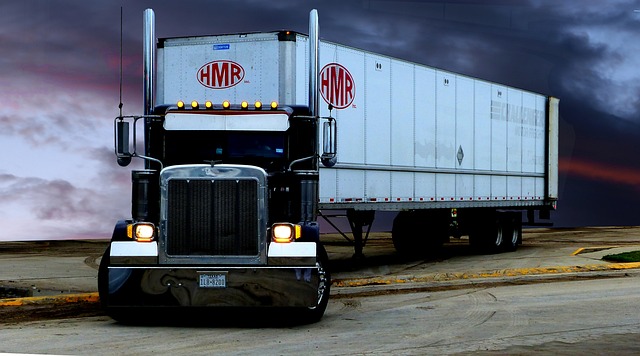Digital advancements have drastically transformed daily life, from communication to information access, revolutionizing sectors like commercial trucking. Fleet managers must stay informed about recall announcements and maintain detailed accident history records to identify patterns, prevent hazards, and make informed decisions about vehicle maintenance and replacement. Advanced analytics, by correlating mileage, driver behavior, and environmental factors, offer a holistic view of vehicle health, enhancing safety, reducing downtime, and fostering a culture of data-driven decision making and road safety.
In the commercial trucking sector, understanding a vehicle’s history is paramount to safety and operational efficiency. Commercial Truck Accident History checks are an essential tool for fleet managers, offering crucial insights into previous accidents and potential issues. Recent high-profile recalls, such as General Motors’ large-scale action, underscore the importance of these checks in identifying defects that could lead to catastrophic crashes. By delving into accident records, managers can make data-driven decisions to enhance vehicle reliability, ultimately safeguarding drivers, passengers, and other road users.
- Commercial Truck Accidents: Uncovering Hidden Risks
- The Impact of Recall Events on Fleet Management
- Safety Measures: Accident History Checks
- Enhancing Reliability Through Data Analysis
- Ensuring Road Safety: A Comprehensive Approach
Commercial Truck Accidents: Uncovering Hidden Risks

The Impact of Recall Events on Fleet Management

Recall events play a significant role in shaping fleet management practices, especially in the commercial trucking industry. When major manufacturers like General Motors initiate recalls, it underscores the need for fleet managers to be vigilant about the vehicles under their care. These recalls highlight potential safety hazards and serve as a reminder that even seemingly minor issues can have severe consequences.
By staying abreast of recall announcements, fleet managers can proactively address similar issues within their existing fleets. Conducting regular checks and maintaining comprehensive accident history records enable them to identify patterns, take preventive measures, and make informed decisions regarding vehicle maintenance and replacement. This proactive approach ultimately contributes to enhancing fleet safety and reducing the risk of accidents, aligning with the industry’s primary goal of ensuring the well-being of drivers, passengers, and other road users.
Safety Measures: Accident History Checks

Accident history checks serve as a cornerstone for ensuring safety in the commercial trucking industry. By scrutinizing a vehicle’s past, fleet managers gain invaluable insights into potential hazards and underlying mechanical issues. These checks not only reveal previous accidents but also provide data on frequent maintenance needs, helping to identify areas prone to wear and tear. Such proactive measures significantly reduce the risk of future accidents, especially given the high stakes involved in commercial trucking.
In light of recent recalls and safety concerns, accident history checks have become even more critical. For instance, General Motors’ recall underscores the importance of identifying and rectifying defects promptly. Fleet managers who incorporate thorough accident history reviews into their operations can stay ahead of such issues, enhancing vehicle safety and reliability, and ultimately protecting both drivers and other road users.
Enhancing Reliability Through Data Analysis

In-depth data analysis plays a pivotal role in enhancing a vehicle’s reliability within the trucking industry. By scrutinizing historical accident records, fleet managers can identify recurring patterns and issues that may have been overlooked during initial inspections. This analytical approach allows for proactive measures to be taken, such as targeted maintenance programs tailored to specific problem areas. For instance, if data reveals frequent brake failures in a particular model, managers can implement rigorous maintenance schedules for these systems, reducing the risk of sudden malfunctions.
Moreover, advanced analytics enables the identification of potential red flags that may not immediately appear during routine checks. By correlating various data points—from mileage and usage patterns to driver behavior and environmental factors—managers gain a holistic view of vehicle health. This can lead to more effective decisions regarding replacement parts, fleet routing optimization, and even driver training programs, collectively contributing to safer operations and minimized downtime.
Ensuring Road Safety: A Comprehensive Approach

Ensuring road safety in the commercial trucking sector requires a multifaceted approach, with vehicle history checks playing a pivotal role. Beyond simply verifying ownership and past maintenance records, these checks delve into the accident history, offering a clearer picture of each truck’s performance and potential risks. By examining previous accidents and their causes, fleet managers can proactively identify recurring issues or underlying mechanical problems that might go unnoticed during routine inspections.
This proactive strategy mirrors the recent emphasis on recall campaigns by automotive manufacturers like General Motors. Such recalls underscore the necessity for thorough pre-purchase assessments, ensuring that vehicles entering a fleet are not only compliant with safety standards but also free from latent defects. By integrating comprehensive accident history checks into their standard practices, fleet managers empower themselves to make data-driven decisions, ultimately fostering a culture of safety and reliability on the roads.



